Best Day Jobs for Your Vocal Fach
If singing isn't your full-time gig yet, you may need a day job to cover those little things like scarves and tea and... rent. Unfortunately, most day jobs are not artistically fulfilling; you’re not likely to bring your filing skills from temping or your car-seat installation knowledge from babysitting into your opera roles. The trick is to find the right job for you, and by "you," I mean your fach. Here are some examples of the best jobs for your voice type.
Soubrette - Maid
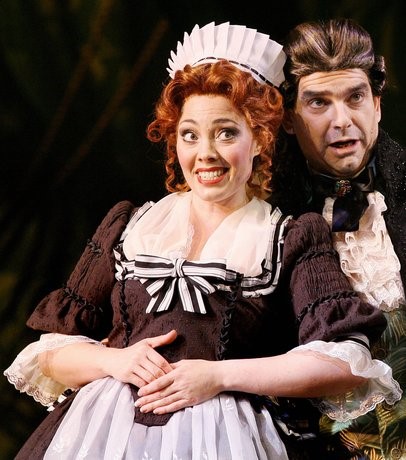
Tiffany Speight as Despina in Cosi fan Tutte (Her Majesty's Theatre, 2006)
Girl, you might as well lean into it. Embrace the method acting for all those -ina, -etta, and -anna roles.
(For the confused non-singers who may have stumbled across this piece, soubrette roles such as Despina in Cosi fan tutte, Serpetta in La finta giardiniera, or Susanna in Le nozze di Figaro are maids. Now you understand why the singer reading this over your shoulder is either laughing uproariously or rolling her eyes.)
Lyric Soprano - Nurse
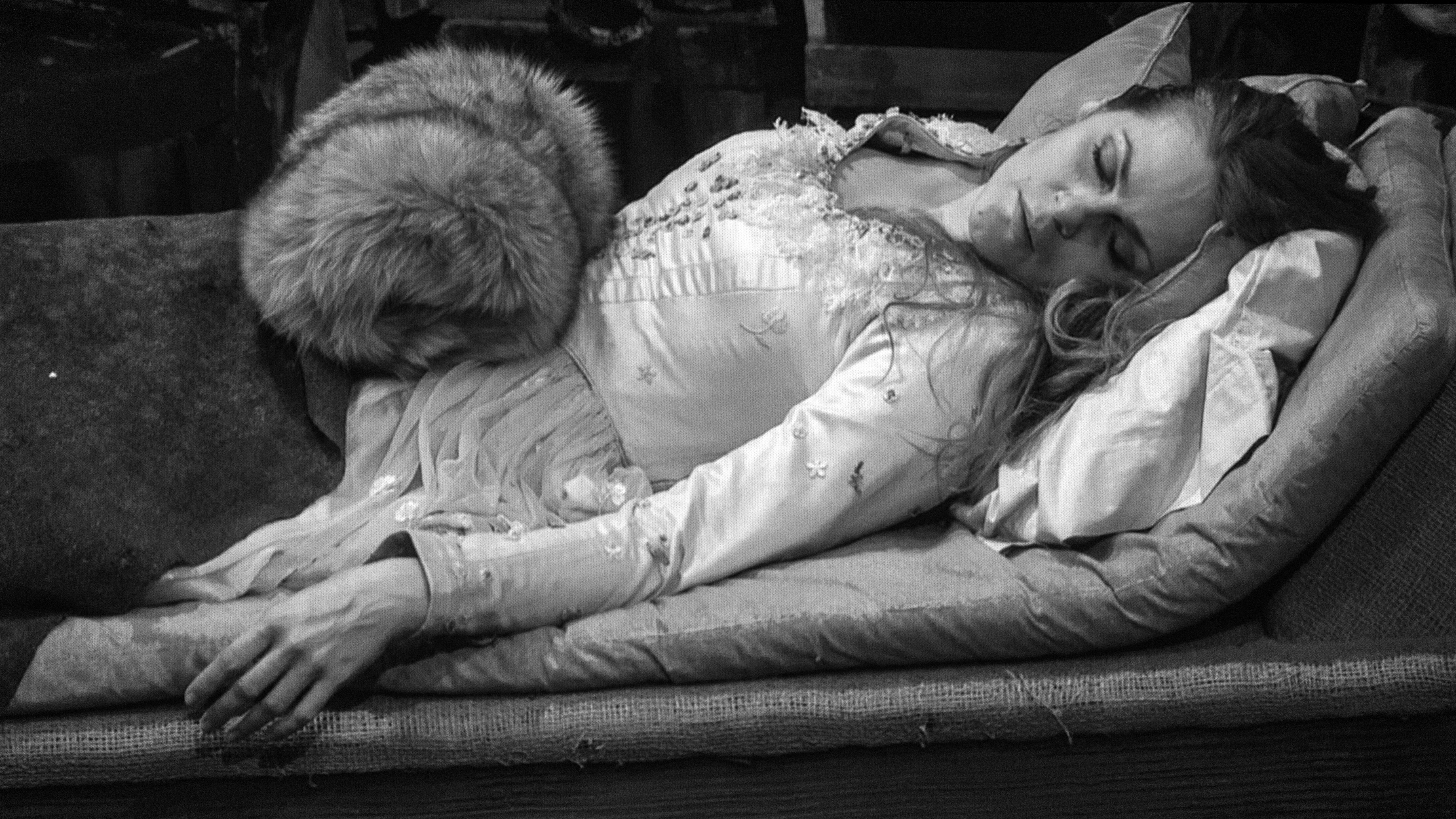
Kristine Opolais as Mimi in La bohème (Metropolitan Opera, 2014)
It could be as simple as Mimi's consumption in La bohème, or it could be death by avalanche in La Wally. Frequently it is a stab wound, as suffered by Juliette in Roméo et Juliette, Liù in Turandot, Nedda in Pagliacci, the list goes on. Lyric soprano characters face a lot of health challenges. As a nurse, you’ll be well versed in all manner of injuries and illnesses to bring a realistic perspective to these characters. Not to mention that nurses are consistently one of the most in demand professions out there, so the lack of insane competition should be a nice change of pace from your musical life.
Dramatic Soprano - CEO
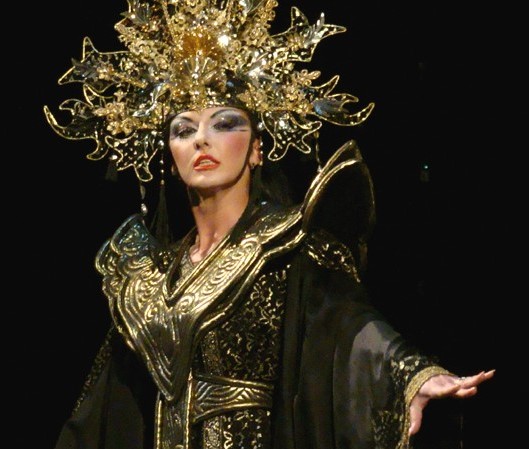
Turandot (Music Theatre Karlín, Czech Republic), Photo: Daniel Jäger
The dramatic soprano is a true boss. You’re frequently playing a princess like Turandot, a fighter like Leonore in Fidelio, or the title character of whatever opera you’re in. What should you do with that power when you’re not on stage? Obviously you should run the world. Channel your true diva energy into your day job as a CEO. It will be a piece of cake after singing Marie in Wozzeck.
Lyric Mezzo - Fashion Model

Elina Garanca as Octavian in Der Rosenkavalier (Metropolitan Opera, 2017) Photo: Kristian Schuller
Are you a man, or are you the sexiest woman anyone has ever seen? You are both. You are ambiguous. From pants roles like Octavian in Der Rosenkavalier to Carmen, the queen of all temptresses, you are ever changing and impossible to ignore. Take that flexible gorgeous energy to the runway and make it work.
Contralto - Young Adult Fiction Author
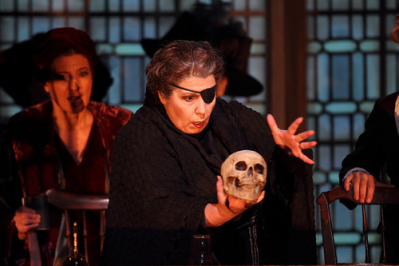
Marianne Cornetti as Ulrica, Un ballo in maschera (Royal Opera House, 2014/2015), Photo: Catherine Ashmore
You’re going to play your share of witches, and sadly, you may not always be the love interest. There aren't too many tenors serenading Ulrica in Un ballo in maschera or Madame Flora in The Medium, but you can make that work for you. Combine your supernatural experience with your unfulfilled thirst for romance and pen the hottest page-turner about a teenage sorceress in love with a sexy zombie.
Countertenor - History Professor

Daniel Cabena as Le Castrat in JJR – Citoyen de Genève (Grand Théâtre de Genève, 2012)
Countertenor roles are often found in music from the Baroque era. If you're going to be singing the music of this time, use it as an excuse to study the world in which this music was written. Eventually you'll get a position lecturing on the politics of 1630's Mantua. It's a niche living, but to every audience member who loves Monteverdi and has a strong interest in the War of Mantuan Succession, you'll be a hero.
Lyric Tenor - International Spy
Giuseppe Filianoti as Nemorino in L'elisir d'amore (LA Opera. 2009/2010), Photo: Robert Millard
Let’s face it, lyric tenors don’t always have the most exciting characters to play. Nemorino love Adina in L'esilir d'amore, Don Ottavio loves Donna Anna in Don Giovanni, Ernesto loves Norina in Don Pasquale... we get it, you're in love. You sound wonderful and your voicetype is in high demand, but you’ll need some excitement in your life. Since you're traveling for gigs, you might as well do something interesting like stealing state secrets during your offstage hours.
Heldentenor - Yoga Instructor

Jay Hunter Morris as Siegfried in Siegfried (San Francisco Opera, 2011), Photo: Cory Weaver
On the opposite side of the coin, Heldentenors need to take a break. Wagner's music is intense and your characters are always upset about something. In your downtime, find a way to center yourself and others. Let yourself breathe without singing loudly on the exhale. It will be a nice change of pace. Namaste.
Baritone - Sales Executive
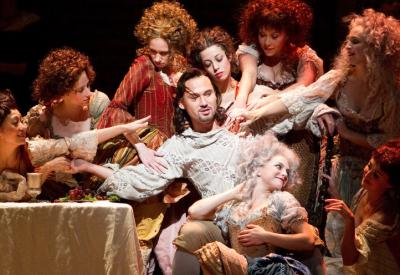
Mariusz Kwiecien as Don Giovanni in Don Giovanni (Metropolitan Opera, 2011), Photo: Marty Sohl
Giovanni, Escamillo, Figaro, baritones play a lot of confident characters. You need to be charming, convincing, and likeable, even if you're not the hero of the story. Sales is the best field to hone this craft. Enjoy a corporate sponsored seminar teaching you how to "Reframe your approach through Social Paradigms," and translate that energy into getting Zerlina to leave Masetto. In the end it's all about closing those deals.
Basso buffo - Guidance Counselor
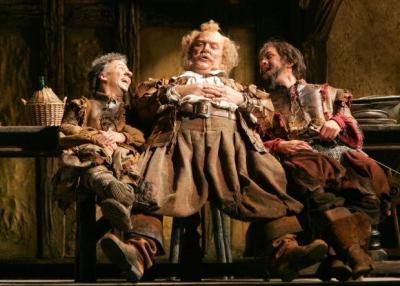
Bryn Terfel as Falstaff in Falstaff (Metropolitan Opera, 2005) Photo: Diane Bondareff
The characters you play aren’t really evil, but they certainly aren’t the one the audience is meant to root for. Comedic basses tend to be wicked schemers or oblivious blowhards. In the end, both get their comeuppance. Falstaff and Don Pasquale for instance are both old men who have grown to be insufferable. After a few roles, you’re an expert in what not to do. Help guide future generations onto a kinder, wiser path. Show them towards philanthropy and education rather than misogyny and deceit.
Basso profondo - Audiobook Narrator

Viacheslav Pochapsky as Sarastro in Die Zauberflöte (Mozart Festival Opera, 2006) Photo: Robin Grant
If you sing those deep notes of Sarastro in Die Zauberflöte or Il Commendatore in Don Giovanni, chances are your speaking voice has similarly robust resonance. Have you noticed how much people love listening to you talk? Please pick up a copy of The Alchemist and read it aloud in your deep, soothing tone. The world will love you for it.
Survival jobs can be frustrating, but the right gig can enhance your operatic career. Make every day an in-depth role study or perfect compliment to your singing life. If the above suggestions don't work out, keep searching for the day job that gives you the best balance of income and time to make your singing a priority. It's a difficult balance, but one that is worth taking the time to find. Good luck in the job hunt!








